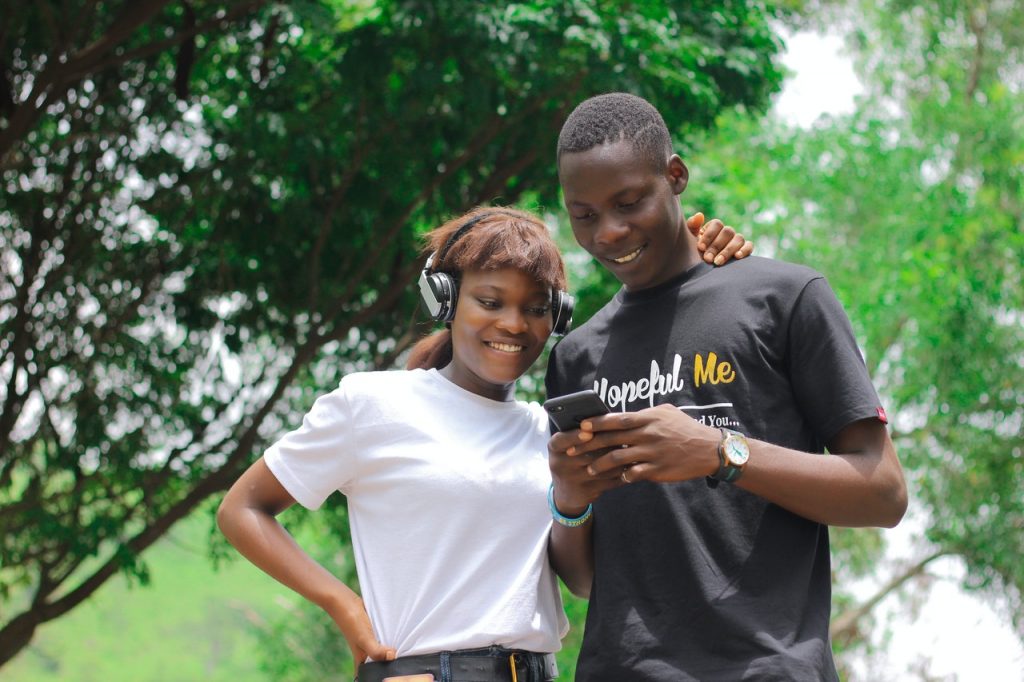Government to track your location to digitally map COVID-19 transmission
By: Natasha Archary

What if we told you this wouldn’t be the first time GPS-based location services were used to track South Africans for “health” purposes? What if cellphone service providers and manufacturers shadily signed you up for a 24-month contract to geo-slavery?
In the midst of the COVID-19 pandemic, which has effectively seen the country in full on lockdown mode, a report from The South African suggests that the South African government will be tracking mobile phones in an attempt to digitally map virus transmission.
Ethical considerations for humancentric geo-mapping
In a 2019 thesis paper about the ethical considerations in the use of GPS-based movement tracking in health research – lessons from a care-seeking study in rural West India it details how the South African health department used Geospatial Technologies (GSTs), to trace patients receiving treatment for TB.
The Global Positioning System (GPS), which is a system of satellites orbiting the planet, is capable of geographical mapping and remote sensing whether or not your mobile location is activated or not. How’s that for a mind warp? So, most cellphones users think they’re controlling their visibility with regards to be tracked, when you are actually not in control.
It’s not just your smartphones that can be tracked. The versatility of GPS means that government can trace any outdoor activity on ANY mobile device (doesn’t have to be a smartphone), wearable tech and even vehicles with built-in GPS/Sat Nav systems.
Privacy out the window
Most South Africans have reacted to the piece in the article with great distaste, citing the government disregarding our right to privacy and that is a valid claim. But, with the COVID-19 pandemic and SA issuing a state of disaster could this be the one time we overlook being spied on?

If it means effectively tracing person to person transmission through digital mapping? Currently the rate of infection in the country is increasing steadily, and we have recorded our first two deaths since the virus entered the country. Which is an alarming statistic. Could desperate times mean drastic measures being implemented and ignoring the ethical barriers that are so obviously being breached?
What are South Africans giving up?
With the government now authorized to set up a COVID-19 database, (as of Thursday, 02 April 2020), dating back to the 05 March 2020, in line with the pandemic pushing South Africa into a State of Disaster. The move means the health department now has the power to demand location data from companies, to track anyone who may be carrying the COVID-19 or anyone who has had contact with a carrier. People tracked will not be notified, but a judge will get a list of those whose movements are traced, after the fact.
According to Business Insider, government had made clear intention to make use of cellphone tracking from March 25, claiming mobile operators had agreed to hand over this data. However, both Vodacom and Cell C have released statements that there was never an agreement in place to do so, because it would be illegal.
The information regarding how much South Africans know and are giving up as such, with the tracking underway is unknown, however the health department claims the information does not include personal information, nor would the data identify any specific individual.
Which sounds sketchy at best, because one would then ask, then what it is the point of mobile location tracking in the first place? The database will supposedly be null and void 6-weeks after the COVID-19 pandemic is declared over.
Read more: Business Insider
Confidential information
One of the concerns with the use of the Global Positioning System is the amount of information that can be deduced from a person’s movements and how that information may be used.
Even if consent for geo-tracking is given, over time it poses the threat of an invasion of privacy which could lead to psychological implications where South Africans “feel watched”. The accuracy of the GPS is unquestionable, it’s a solid foundation in the US’s CIA and FBI’s ability to solve terrorism and other state issues.
The biggest red flag in this instance however, is that South Africans were never informed this could be adopted as part of the COVID-19 plan of action for the country. Unless the President was speaking in code when he addressed the nation, we were once again left in the dark.
Written by: Natasha
Similar posts
MORE ARTICLES

In Pictures: Mzansi Celebs serve style and drama at Durban July 2025

Five killed in KZN crash allegedly caused by Polo driver

From Benin to the world: Kidjo makes history as first black African on Hollywood Walk of Fame

Drama, cheating and Surprise guest: RHOD reunion delivers shocking revelations

Why Waterfall Estate’s 99-year lease is practically forever
QUICK LINKS
UpComing Shows

Touch of Soul
With T Bose
Kaya 959 takes back Sundays with A Touch of Soul, the only show bringing you soul and RnB music that touches your mind, body and spirit. The Best T in the City, T-bose takes you back to a time when music was made to last. A Touch of Soul is the perfect wind-down to your weekend. Sundays 14h00 to 18h00.
close
The Jazz Standard
with Brenda Sisane
The Jazz Standard with Brenda Sisane. Sunday's 12:00-15:00.
close
Spade of Hearts
With Xola Dlwati
WITH XOLA DLWATI: SATURDAYS 12:00 -15:00 Spade of Hearts is a fuse of love and soulful sounds, pulling at your heartstrings. Tune in for songs that will take you down memory lane. It is the sound that once dominated your playlist. It airs Sundays 12:00 – 15:00.
close
The World Show
With Nicky B
The World Show is informative, expansive, and largely pan-African. This is a musical journey that bridges generations and genres, travelling across continents and timelines, with in-depth interviews and features. ‘The World Show’ is a four-hour global journey through sound – featuring the freshest tracks from home and afar.
close
959 Music Weekdays
Kaya 959 Hits
Real. Familiar. Memorable. Kaya 959 brings you the music you know and love from our playlist. Uninterrupted. Thursdays 20h00 to 21h00
closeConnect with Kaya 959
DownLoad Our Mobile App
© 2025 Kaya 959 | On The Street On The Air









